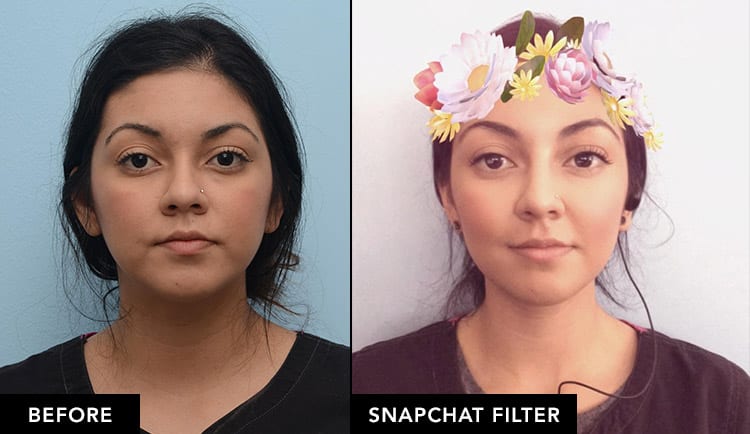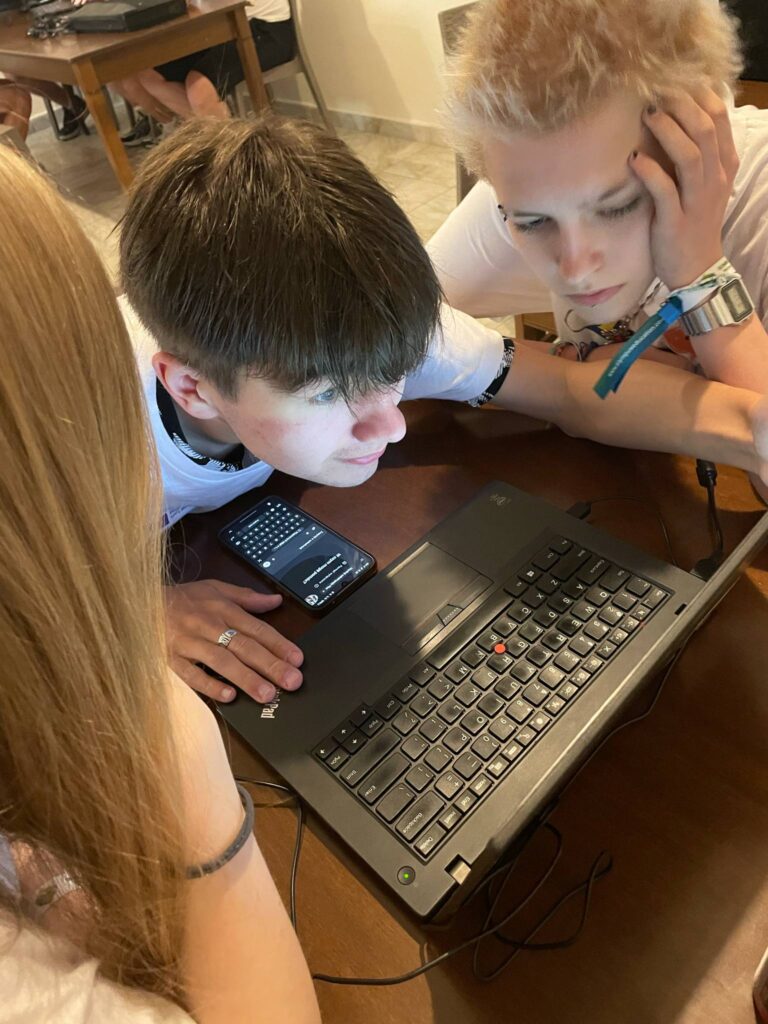How social media affects our self-esteem.
Social media has exploded in popularity over the past two decades and has become an integral part of the daily lives of billions of people around the world. Facebook, Instagram, TikTok, Twitter, Snapchat, and other platforms have not only changed the way we communicate, but have also had a significant impact on how we perceive ourselves and others. This article examines how social media affects our sense of self, drawing on current psychological, sociological, and cultural research.


Filter Effect and Unrealistic Standards Apps that offer filters and photo editing capabilities cause users to present a distorted image of reality. Such a presentation of oneself and others creates unrealistic standards of beauty and success, which can lead to frustration, complexes, and low self-esteem.
A good example of self-destruction is Weronika Sowa, known as Wersow. Wanting to please her husband Karol Wiśniewski “Friz”, she regularly changes her appearance, so she decided to have a smile makeover. She showed off her new teeth in a YouTube video, but Internet users had no mercy for her. “I’m still getting used to my new smile, so it may be that in some time I’ll decide that I’ll change something else, because all the time (…) I feel that I can’t get used to this smile of mine yet.” In many of her videos, she reacts to her changes with Friz, who is not thrilled with them. In one of the episodes, she admits that she had her breasts enlarged for Karol.

Comparing Yourself to Unrealistic Standards
On social media, we often see only idealized parts of other people’s lives—exotic trips, luxury cars, beautiful bodies, professional successes. What we see is not the whole of their lives, but an idealized version—often filtered, staged, and sometimes completely fake. We may feel that our lives are “not enough”—less exciting, less successful, less valuable.
Examples of people who have been criticized for pretending to have a perfect life:
Maffashion (Julia Kuczyńska) She is one of the most famous Polish fashion influencers. She often shows a luxurious lifestyle, designer clothes and perfectly polished photos. Criticism included showing only perfect moments without showing everyday difficulties or the consequences of life in the spotlight.
Jessica Mercedes Like Maffashion, Jessica is associated with fashion and lifestyle, where perfection and a high standard of living reign supreme. Sometimes there were accusations that she presented a “fairytale” life, which could put pressure on younger viewers.
Sylwia Przybysz A singer and influencer who, together with her husband, showed an idyllic family life. She was criticized for “idealizing” motherhood and family relationships, which does not reflect the whole truth about the challenges of everyday life.

A common problem in social media is excessive sharing, or The term comes from the English words “share” and “parenting” and refers to the practice of parents regularly publishing photos, videos, and information about their children on social media. People from Poland and sharing: In Poland, according to research, a significant number of parents engage in sharing. It is estimated that about 40% of parents document their children’s growth on social media. They publish an average of 72 photos and 24 videos of their children each year. Examples of such people include: Andziaks, Lil Masti (Sexmasterka) and TheHappyFamilly

Creating the Ideal Life on Social Media
Creating a second, idealized life on social media is a phenomenon that is increasingly being analyzed by psychologists, sociologists, and researchers of new media. In short, it involves escaping reality and compensating for emotional shortcomings by presenting oneself online as a fulfilled, attractive, and happy person – often detached from what is truly happening in one’s offline life.
Reasons for Creating an Idealized Life on Social Media:
Lack of Acceptance and Self-Worth: People who do not feel accepted in real life – for example, in their family, school, work, or peer relationships – may seek that acceptance online. Social media offers immediate feedback in the form of likes, comments, and followers, creating the illusion of popularity and recognition.
The Need for Control Over One’s Image: Online, one can choose what to show – perfect photos, successes, smiles. This contrasts with daily life, where not everything can be controlled. Creating a perfect version of oneself gives a sense of power and control over one’s “life.”
Escaping Loneliness and Emotional Void: When there is a lack of close relationships, social media becomes a place to “be someone,” even if it’s just a facade. For some, it’s a way to fill emotional emptiness.
Social Pressure and Comparison: By observing the idealized lives of others, many people feel they must keep up. This leads to creating equally unrealistic images of themselves, which deepens the overall sense of insincerity and alienation.
Consequences of This Behavior:
Deepening Internal Conflict: The greater the discrepancy between the “real me” and the “online me,” the higher the risk of identity crisis and depression.
Addiction to External Validation: One’s mood becomes dependent on how many “likes” a post receives, rather than on real relationships and values.
Depletion of Offline Relationships: Constant focus on what is shown online detracts from building authentic connections in real life.
Lack of Personal Development: Instead of facing challenges and trying to change something about oneself or one’s environment, an escapist, fictional world is created.
What Can Be Done About It?
Work on Self-Acceptance: Often, it’s best to do this with the help of a psychologist.
Conscious Use of Social Media: Limiting the time spent on social media and observing what kind of content triggers certain feelings within us.
Developing Offline Relationships: Building connections with people who know and accept us without filters.
Authenticity: Sharing more difficult moments as well (if posting) to create a more genuine image of oneself and break artificial norms.
Who Are You Following?
Take a moment to think about the profiles you follow. Do they inspire you and make you feel good, or do they evoke feelings of jealousy, anxiety, or inadequacy? Don’t hesitate to unfollow or mute accounts that negatively affect your well-being.
Remember, It’s Just a Snapshot:
Be aware that most people only show carefully selected moments of their lives on social media. It is rarely a full or objective representation of their reality.

Summary:
Social media has a strong impact on self-esteem. On one hand, they promote comparison with idealized images of others’ lives, which often leads to lowered self-esteem, complexes, and feelings of inadequacy. The culture of likes and comments makes self-worth sometimes dependent on external reactions, which is fleeting. Creating an idealized online image generates pressure and reduces authenticity. The phenomenon of FOMO (Fear of Missing Out) induces anxiety about missing out and a sense of being less valuable. Cyberbullying and negative comments directly harm and lower self-worth.
On the other hand, social media can help build communities and gain support, allow self-expression and creativity, provide access to inspiration and knowledge, and engage people in social activism. However, these positive aspects are often overshadowed by mechanisms that negatively affect self-perception. As a result, intense and unconscious use of social media is often associated with a lowered sense of self-worth.
As teenagers, we understand the impact of social media on us, which is why we avoid falling into this cycle of mistakes. We learn from bad examples and take valuable lessons from them.

